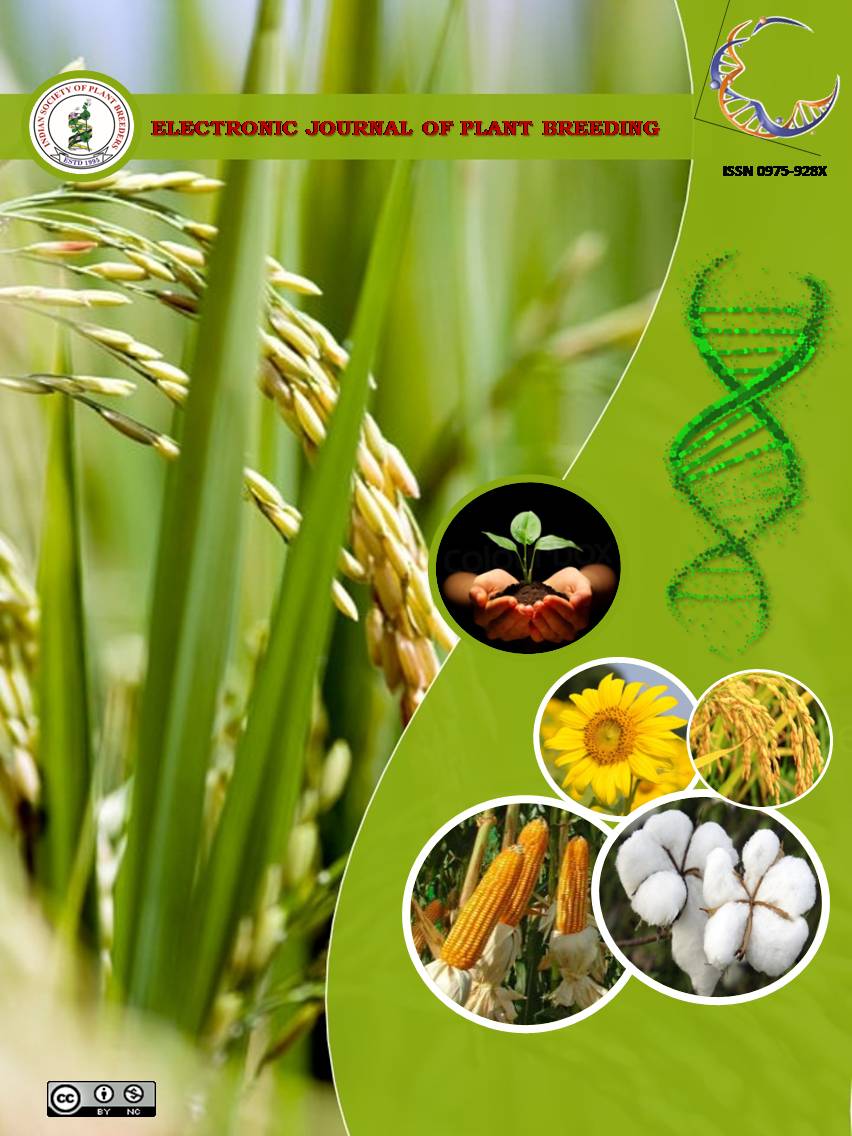A Study on per se performance and heterosis for kernel yield and its attributing traits in maize [Zea mays (L.)]
Per se performance and Heterosis in maize
Abstract
The phenomenon of heterosis has provided the most important genetic tools in improving yield of crop plants. Identification of specific parental combination capable of producing the highest level of heterotic effects in F1 has immense value for commercial exploitation of heterosis. The experimental material comprised of eight parental lines, 28 F1 hybrids with one standard check (GAYMH-1). On the basis of per se values, the parents CML 338, VL-1032 and BLD-11 were recorded maximum kernel yield per plant, while in case of hybrids, CBE-98 × BLD-11, CBE-98 × MRCN-3 and CBE-26 × BLD-11 were best for kernel yield per plant. The population mean for kernel yield per plant was 99.74 gm. Among the 28 hybrids, 4 hybrids i.e. CBE-26 × MRCN-3, CBE-26 × VL-109178, VL-109178 × MRCN-3 and CBE-98 × MRCN-3 manifested significant and desirable heterosis over mid parent, better parent and economic heterosis over check (GAYMH-1) for kernel yield per plant and other component traits viz.cob weight, cob length, cob girth, 100-kernel weight, number of kernel row per cob and number of kernel per row.

It is certified that:
- The corresponding author is fully responsible for any disputes arising due to the publication of his/her manuscript.
- The article has been seen by all the authors who are satisfied with its form and content.
- The sequence of names of authors in the by-line is as per their relative contribution to this experiment, giving due credit to all scientists who made notable contribution to it.
- All the authors fully understand that inclusion of any other co-authors or exclusion of any co-authors is not possible once the article has been submitted to the journal.
- The corresponding author takes full responsibility for this article.
- The address of the organization where the research was conducted is given.
- The article is exclusive for this journal, and the results reported here have not been sent (and will not be sent during its consideration by this journal) for publication in any other journal.
- Authors agree to abide by the objective comments of referees and do agree to modify the article into a short note as per the recommendation, for publication in the Electronic Journal of Plant Breeding.
- If published in Electronic Journal of Plant Breeding, the copyright of this article would vest with the Indian Society of Plant Breeders, who will have the right to enter into any agreement with any organization in India or abroad engaged in reprography, photocopying, storage and dissemination of information contained in it, and neither we nor our legal heirs will have any claims on royalty.


